
The final night of Otomo and Sachiko's first residency at London's Cafe OTO in 2009 saw the pair joined by the long-running trio of Evan Parker, John Edwards and Tony Marsh and special guest John Butcher, for an exceptional set of creative improvisation.
Out of Stock
Quantity in Basket: None
Log In to use our Wish List
Shipping Weight: 3.00 units
Sample The Album:
Otomo Yoshihide-guitar
Sachiko M-sampler
Evan Parker-saxophones
Tony Marsh-drums
John Edwards-doublebass
John Butcher-saxophones
Click an artist name above to see in-stock items for that artist.
UPC: B00JBACG98
Label: Otoroku
Catalog ID: ROKU 009CD
Squidco Product Code: 18878
Format: CD
Condition: New
Released: 2014
Country: Great Britain
Packaging: Cardstock gatefold foldover
Recorded at Cafe OTO in London, England, on March 9th, 2009, by Shane Browne.
"The final night of Otomo Yoshihide and Sachiko M's first residency in 2009 saw the pair joined by the long-running trio of Evan Parker, John Edwards and Tony Marsh and special guest John Butcher. Butcher played duos with both Otomo and Sachiko and joined the quintet for a rousing sextet: stunning twin saxophone interplay, the unparalleled openness of the Marsh/Edwards rhythm pairing, Sachiko's deft high-frequency interventions and Otomo's guitar at the center -- moving between abrasive textural invention and suggestive single-note runs of ever-shifting melody.
OTOMO YOSHIHIDE / guitar
Otomo Yoshihide is one of the most important musicians of the Japanese underground/avant-garde. He moves between free jazz, noise, improvisation, composition and the unclassifiable with a generosity that opens up the possibilities for expression in all of the constellations with which he's involved. After the earthquake/tsunami struck his native Fukushima in early 2011 Otomo played very little outside of Japan, dedicating a considerable amount of energy to the relief efforts there including the annual international Project Fukushima concerts. It was a pleasure to finally welcome him back to Cafe OTO in 2013 for two stunning multi-day residencies, including a revision of the remarkable piano solo he first performed in 2009 and a ripping quintet with John Butcher, Mats Gustafsson, Guillaume Viltard and Mark Sanders.
Influenced by his father, an engineer, Otomo began making electrical devices such as a radio and an electronic oscillator in his early teens and his first experience of creating music was by making sound collages using open-reel tape recorders whilst still in junior high school. Soon after entering high school he formed a band which played rock and jazz, with Otomo on guitar. It wasn't long, however, before he became a free jazz aficionado, listening to artists like Ornette Coleman, Erick Dolphy and Derek Bailey; and hearing music, both on disk and at concerts, by Japanese free jazz artists including the great alto sax player Kaoru Abe and guitarist Masayuki Takayanagi.
In 1990, Otomo started what was to become Ground Zero. Until it disbanded in March 1998, the band was at the core of his musical creativity, while it underwent several changes in style and membership. Since Ground Zero, Otomo has embraced minimal improvisation, film music and the jazz/big band conceptions of his New Jazz Quartet/Quintet/Orchestra.
SACHIKO M / sine waves
Sachiko M has been active as a sampler player since 1994. Early in her career she was involved in the cut-up and "plunderphonic" (or "plagiaristic") sampling movements. In '98, in a drastic departure from those approaches, she originated the revolutionary method she uses to this day--manipulating the sampler's internal test tones. With the 2000 release of Sine Wave Solo, her extreme solo recording consisting entirely of sine waves, Sachiko M suddenly became the focus of intense interest on the international scene, including European music festivals and Britain's Wire magazine. Since then she's been active on an irregular basis in a number of projects--including the experimental electronic music duo Filament, the electronics trio I.S.O., a duo with Toshimaru Nakamura, and the duo Cosmos with Ami Yoshida--in addition to collaborating with various musicians from other countries. Two of the solo projects she's currently working on are the live performance series Bar Sachiko and the sound installation I'm Here.
EVAN PARKER / saxophones
Evan Parker has been a consistently innovative presence in British free music since the 1960s. Parker played with John Stevens in the Spontaneous Music Ensemble, experimenting with new kinds of group improvisation and held a long-standing partnership with guitarist Derek Bailey. The two formed the Music Improvisation Company and later Incus Records. He also has tight associations with European free improvisations - playing on Peter Brötzmann's legendary 'Machine Gun' session (1968), with Alexander Von Schlippenbach and Paul Lovens (A trio that continues to this day), Globe Unity Orchestra, Chris McGregor's Brotherhood of Breath, and Barry Guy's London Jazz Composers Orchestra (LJCO).
JOHN EDWARDS / double bass
John Edwards is a true virtuoso whose staggering range of techniques and boundless musical imagination have redefined the possibility of the double bass and dramatically expanded its role, whether playing solo or with others. Perpetually in demand, he has played with Evan Parker, Sunny Murray, Derek Bailey, Joe McPhee, Lol Coxhill, Peter Brötzmann, Mulatu Astatke and many others.
TONY MARSH / drums
Tony Marsh was a vital presence in London's improvised music scene right up until his shock passing in April 2012. He played regularly with Evan Parker, John Edwards, Paul Dunmall, Nick Stevens, The London Improvisers Orchestra and many others as well as making an understated but essential contribution to dates with visiting musicians including Peter Brötzmann, Ishmael Wadada Leo Smith and Roscoe Mitchell. The Guardian's Richard Williams nails it when he descibes Tony's "marvelous ability to erase the boundary between time and no-time" and "an exquisite feeling for percussive texture".
JOHN BUTCHER / saxophones
John Butcher is a saxophonist of rare grace and power, who has expanded the vocabulary of the saxophone far beyond the conventions of jazz and other musics, to encompass a staggering range of harmonics, multiphonics, overtones, percussive sounds, and electronic feedback. But his playing is far more than merely an array of special effects: it's characterised by an intensity that propels it into strange new places that are both incredibly beautiful and deeply exhilarating.
"-Otoroku
Artist Biographies
• Show Bio for Otomo Yoshihide Otomo Yoshihide - born in 1959 in Yokohama, Japan. As a teenager, he spent time in Fukushima. Staying independent, he has consistently composed a wide range of music from improvisation to noise music and pop, and his music talent has spread all over the world. He has a successful career as a film score composer and has produced more than 70 movie soundtracks. In recent years, he has produced special type of concerts and musical works in collaboration with other various artists under the name of "ensembles". In addition, one of his priorities is,producing musical workshop projects involving handicapped children. In 2011, after the Great East Japan Earthquake , he started "PROJECT FUKUSHIMA!" along with people in various sectors. He has been active beyond the music scene and this is the reason that he has attracted a great deal of attention. In 2012, he received the Minister of Education Award for Fine Arts in the category of Promotion for "PROJECT FUKUSHIMA!". In 2013, he received various prizes including the Japan Record Award for his accomplishments, such as composing the theme music for the TV drama "Amachan". "I use my real name "Otomo Yoshihide" as my stage name. When you write your Japanese name in English alphabet, many people often write their given names first, then their family names, following in the Western traditional culture. But originally, some Asian countries, including Japan, write their family names first, and then their given names follow after that. In my opinion, there is not only one standard for people's names and we should respect the values each person attaches to their name. Calling someone by his first name is a wonderful custom in Western culture to express familiarity with each other but that custom is not necessary in Japan because nobody has ever called me by my first name. It does not mean that people are unlikely to become close friends with me. It is just that calling me "Otomo" seems easier. There are some places with such customs in the world; where people friendlily call you by your family name. I am definitely not a nationalist but I have a feeling that something is wrong with those people who do not only disregard the tradition I am familiar with, but would rather follow Western standards. For this reason, I would like to continue using the notation "Otomo Yoshihide" as before. When you call me, please call me "Otomo" as before. This will not cause any problems in its use. Until now, many people have written my name "Yoshihide Ōtomo" or "Yoshihide Otomo" but please understand those notations are not my intention. I am sincerely grateful for your consideration." ^ Hide Bio for Otomo Yoshihide • Show Bio for Sachiko M "Sachiko Matsubara (Japanese: 松原 幸子; born 1973), better known by her stage name Sachiko M, is a Japanese musician. Her first solo album, Sine Wave Solo, was released in 1999. Working in collaboration with Ami Yoshida under the name Cosmos in 2002, Sachiko released the two disc album Astro Twin/Cosmos (2) which was awarded the Golden Nica prize in Ars Electronica, 2003. She released Good Morning Good Night, a collaborative album with Otomo Yoshihide and Toshimaru Nakamura, in 2004." ^ Hide Bio for Sachiko M • Show Bio for Evan Parker "Evan Parker was born in Bristol in 1944 and began to play the saxophone at the age of 14. Initially he played alto and was an admirer of Paul Desmond; by 1960 he had switched to tenor and soprano, following the example of John Coltrane, a major influence who, he would later say, determined "my choice of everything". In 1962 he went to Birmingham University to study botany but a trip to New York, where he heard the Cecil Taylor trio (with Jimmy Lyons and Sunny Murray), prompted a change of mind. What he heard was "music of a strength and intensity to mark me for life ... l came back with my academic ambitions in tatters and a desperate dream of a life playing that kind of music - 'free jazz' they called it then." Parker stayed in Birmingham for a time, often playing with pianist Howard Riley. In 1966 he moved to London, became a frequent visitor to the Little Theatre Club, centre of the city's emerging free jazz scene, and was soon invited by drummer John Stevens to join the innovative Spontaneous Music Ensemble which was experimenting with new kinds of group improvisation. Parker's first issued recording was SME's 1968 Karyobin, with a line-up of Parker, Stevens, Derek Bailey, Dave Holland and Kenny Wheeler. Parker remained in SME through various fluctuating line-ups - at one point it comprised a duo of Stevens and himself - but the late 1960s also saw him involved in a number of other fruitful associations. He began a long-standing partnership with guitarist Bailey, with whom he formed the Music Improvisation Company and, in 1970, co-founded Incus Records. (Tony Oxley, in whose sextet Parker was then playing, was a third co-founder; Parker left Incus in the mid-1980s.) Another important connection was with the bassist Peter Kowald who introduced Parker to the German free jazz scene. This led to him playing on Peter Brötzmann's 1968 Machine Gun, Manfred Schoof's 1969 European Echoes and, in 1970, joining pianist Alex von Schlippenbach and percussionist Paul Lovens in the former's trio, of which he is still a member: their recordings include Pakistani Pomade, Three Nails Left, Detto Fra Di Noi, Elf Bagatellen and Physics. Parker pursued other European links, too, playing in the Pierre Favre Quartet (with Kowald and Swiss pianist Irene Schweizer) and in the Dutch Instant Composers Pool of Misha Mengelberg and Han Bennink. The different approaches to free jazz he encountered proved both a challenging and a rewarding experience. He later recalled that the German musicians favoured a "robust, energy-based thing, not to do with delicacy or detailed listening but to do with a kind of spirit-raising, a shamanistic intensity. And l had to find a way of surviving in the heat of that atmosphere ... But after a while those contexts became more interchangeable and more people were involved in the interactions, so all kinds of hybrid musics came out, all kinds of combinations of styles." A vital catalyst for these interactions were the large ensembles in which Parker participated in the 1970s: Schlippenbach's Globe Unity Orchestra, Chris McGregor's Brotherhood of Breath, Barry Guy's London Jazz Composers Orchestra (LJCO) and occasional big bands led by Kenny Wheeler. In the late 70s Parker also worked for a time in Wheeler's small group, recording Around Six and, in 1980, he formed his own trio with Guy and LJCO percussionist Paul Lytton (with whom he had already been working in a duo for nearly a decade). This group, together with the Schlippenbach trio, remains one of Parker's top musical priorities: their recordings include Tracks, Atlanta, Imaginary Values, Breaths and Heartbeats, The Redwood Sessions and At the Vortex. In 1980, Parker directed an Improvisers Symposium in Pisa and, in 1981, he organised a special project at London's Actual Festival. By the end of the 1980s he had played in most European countries and had made various tours to the USA, Canada, Australia, New Zealand and Japan. ln 1990, following the death of Chris McGregor, he was instrumental in organising various tributes to the pianist and his fellow Blue Notes; these included two discs by the Dedication Orchestra, Spirits Rejoice and lxesa. Though he has worked extensively in both large and small ensembles, Parker is perhaps best known for his solo soprano saxophone music, a singular body of work that in recent years has centred around his continuing exploration of techniques such as circular breathing, split tonguing, overblowing, multiphonics and cross-pattern fingering. These are technical devices, yet Parker's use of them is, he says, less analytical than intuitive; he has likened performing his solo work to entering a kind of trance-state. The resulting music is certainly hypnotic, an uninterrupted flow of snaky, densely-textured sound that Parker has described as "the illusion of polyphony". Many listeners have indeed found it hard to credit that one man can create such intricate, complex music in real time. Parker's first solo recordings, made in 1974, were reissued on the Saxophone Solos CD in 1995; more recent examples are Conic Sections and Process and Reality, on the latter of which he does, for the first time, experiment with multi-tracking. Heard alone on stage, few would disagree with writer Steve Lake that "There is, still, nothing else in music - jazz or otherwise - that remotely resembles an Evan Parker solo concert." While free improvisation has been Parker's main area of activity over the last three decades, he has also found time for other musical pursuits: he has played in 'popular' contexts with Annette Peacock, Scott Walker and the Charlie Watts big band; he has performed notated pieces by Gavin Bryars, Michael Nyman and Frederic Rzewski; he has written knowledgeably about various ethnic musics in Resonance magazine. A relatively new field of interest for Parker is improvising with live electronics, a dialogue he first documented on the 1990 Hall of Mirrors CD with Walter Prati. Later experiments with electronics in the context of larger ensembles have included the Synergetics - Phonomanie III project at Ullrichsberg in 1993 and concerts by the new EP2 (Evan Parker Electronic Project) in Berlin, Nancy and at the 1995 Stockholm Electronic Music Festival where Parker's regular trio improvised with real-time electronics processed by Prati, Marco Vecchi and Phillip Wachsmann. "Each of the acoustic instrumentalists has an electronic 'shadow' who tracks him and feeds a modified version of his output back to the real-time flow of the music." The late 80s and 90s brought Parker the chance to play with some of his early heroes. He worked with Cecil Taylor in small and large groups, played with Coltrane percussionist Rashied Ali, recorded with Paul Bley: he also played a solo set as support to Ornette Coleman when Skies of America received its UK premiere in 1988. The same period found Parker renewing his acquaintance with American colleagues such as Anthony Braxton, Steve Lacy and George Lewis, with all of whom he had played in the 1970s (often in the context of London's Company festivals). His 1993 duo concert with Braxton moved John Fordham in The Guardian to raptures over "saxophone improvisation of an intensity, virtuosity, drama and balance to tax the memory for comparison". Parker's 50th birthday in 1994 brought celebratory concerts in several cities, including London, New York and Chicago. The London performance, featuring the Parker and Schlippenbach trios, was issued on a highly-acclaimed two-CD set, while participants at the American concerts included various old friends as well as more recent collaborators in Borah Bergman and Joe Lovano. The NYC radio station WKCR marked the occasion by playing five days of Parker recordings. 1994 also saw the publication of the Evan Parker Discography, compiled by ltalian writer Francesco Martinelli, plus chapters on Parker in books on contemporary musics by John Corbett and Graham Lock. Parker's future plans involve exploring further possibilities in electronics and the development of his solo music. They also depend to a large degree on continuity of the trios, of the large ensembles, of his more occasional yet still long-standing associations with that pool of musicians to whose work he remains attracted. This attraction, he explained to Coda's Laurence Svirchev, is attributable to "the personal quality of an individual voice". The players to whom he is drawn "have a language which is coherent, that is, you know who the participants are. At the same time, their language is flexible enough that they can make sense of playing with each other ... l like people who can do that, who have an intensity of purpose." " ^ Hide Bio for Evan Parker • Show Bio for Tony Marsh Tony Marsh, real name Anthony Vincent Stewart Marsh, was a British free jazz/improv drummer and percussionist (born 19 August 1939, Lancaster, died of cancer aged 72, 9 April 2012 in London, England). "The percussionist Tony Marsh, who has died of cancer aged 72, was an inspired collaborator, combining intensity with restraint and stroking the drums more than he struck them. He worked with some of the most creative artists in European jazz of the past four decades, from the composer Mike Westbrook to the saxophonists John Tchicai and Evan Parker. Marsh devoted his life to an art form short on cash and kudos, but long on creative satisfaction. In his last months he sought inspiration in the complex scores of the composer Iannis Xenakis; formed a new trio with two of London's most creative jazz 20-somethings; and, in March, played an impromptu London performance with the Chicago saxophone master Roscoe Mitchell that astonished those who witnessed it. Marsh was born in Lancaster, the eldest of three brothers. The family moved to London after the second world war in search of better medical care for his tuberculosis, and he spent a long period of recuperation in St Thomas' hospital. That period of illness seriously hampered his formal education, but he became a good enough teenage footballer to enter trials for professional clubs. He took up the drums as a military bandsman during national service in the 50s and would play them at Butlins' holiday camps and on cruise ships. In the 60s, he made a living in the West End of London as a jobbing drummer - also learning from records by the great American jazz bands of Clifford Brown (with the bebop drums pioneer Max Roach), Miles Davis and John Coltrane. In the early 70s, Marsh joined the saxophonist Don Weller, the bass guitarist Bruce Colcutt and the guitarist Jimmy Roche in Major Surgery. The band only released one album, First Cut (1977), but it acquired lasting cult status. He also began productive relationships with the saxophonist Chris Biscoe, the Barbadian trumpeter Harry Beckett and the saxophonist Mike Osborne (in the last period of that cutting-edge artist's playing life, before mental illness incapacitated him in 1982). Marsh then discovered Westbrook's brass band and big-band music, improv, cabaret and more. Marsh's relaxed dynamism powered an unusual Westbrook big band on an Ellington tribute at Amiens, France, in 1984. It became the landmark album On Duke's Birthday. Four years later, Marsh joined Biscoe's quartet, Full Monte. Through his European tours with Westbrook, Marsh forged a link with the French jazz scene, regularly commuting between Paris and London until the early 2000s. In 1985, he joined Biscoe and a French brass section to record the bassist Didier Levallet's album Quiet Days, followed by a series of sessions led by Beckett - including one that Levallet considered among his best recordings, Images of Clarity (1992). He also played with the adventurous UK pianist Howard Riley, reeds player Paul Dunmall, and with the saxophonist Simon Picard and the bass virtuoso Paul Rogers on their recording News from the North (1991) for the Swiss experimental label Intakt. Marsh then committed himself increasingly to life in London. He hugely enjoyed his monthly involvement in the experimental London Improvisers Orchestra (involving the composer/pianist Steve Beresford, Parker and a loose repertory company of others). He was also a permanent member of one of the most thrilling European free-improv trios of recent times, with Parker and the double bassist John Edwards. Marsh was also the driving force behind a genre-crossing quartet with the flautist Neil Metcalfe, the violinist Alison Blunt and the cellist Hannah Marshall. Since 2011, he had begun a productive relationship with two hotly tipped newcomers, the reeds player Shabaka Hutchings and the bassist Guillaume Viltard. They played freely without prolixity, combined fine detail with spontaneity, and eschewed amplification. "Listen closely, take a chance, keep going even if money's tight, and you'll find the real reward - that's why Tony was hip in the most meaningful sense," Parker says. "And he didn't need to play loud, or be loud, to get that intensity. It's like splitting diamonds or something. If you know exactly the right place to make the impact, you don't need to hit anything hard." [...]"-John Fordham, The Guardian ^ Hide Bio for Tony Marsh • Show Bio for John Edwards "After taking up the bass, around 1987, John Edwards co-formed The Pointy Birds who went on to win awards for their music for The Cholmondeleys and Featherstonehaughs dance troupes. The group appeared at festivals in Glasgow, Edinburgh, Moers, Leverkusen, Copenhagen. Around 1990, Edwards played his first gigs with London improvisers such as Roger Turner, Lol Coxhill, Maggie Nicols, Phil Minton. Between 1990 and 1995 Edwards was a member of three touring groups simultaneously: B-Shops For The Poor, The Honkies and GOD. During this period he also became an increasingly regular player on the London improvised music scene and performed his first solo gigs; he composed and performed music theatre with the bass and cello duo The Great Explorers, street-busked a lot and appeared at many more festivals in Germany, Estonia, France, Italy, Czech, etc. Since 1995 John Edwards has become a "mainstay" of the London scene, playing with just about everybody, an activity that has seen him clocking up between 150 and 200 gigs a year. He has become regular player with Evan Parker, in many groupings, and with Tony Bevan, Veryan Weston, and Elton Dean, often in collaboration with Mark Sanders on percussion. He has become a more frequent player on the European (and festival) scene, appearing at Taktlos, Ulrichsburg, Nickelsdorf, Budapest, New Zealand and in the USA. He continues to work on solo performances." ^ Hide Bio for John Edwards • Show Bio for John Butcher "John Butcher's work ranges through improvisation, his own compositions, multitracked pieces and explorations with feedback and extreme acoustics.Originally a physicist, he left academia in '82, and has since collaborated with hundreds of musicians - Derek Bailey, John Tilbury, John Stevens, The EX, Akio Suzuki, Gerry Hemingway, Polwechsel, Gino Robair, Rhodri Davies, Okkyung Lee, John Edwards, Toshi Nakamura, Paul Lovens, Eddie Prevost, Mark Sanders, Christian Marclay, Otomo Yoshihide, Phil Minton, and Andy Moor - to name a few. He is well known as a solo performer who attempts to engage with the uniqueness of place. Resonant Spaces is a collection of site-specific performances collected during a tour of unusual locations in Scotland and the Orkney Islands.His first solo album, Thirteen Friendly Numbers, includes compositions for multitracked saxophones, whilst later solo CDs focus on live performance, composition, amplification and saxophone-controlled feedback. HCMF has twice commissioned him to compose for his own large ensembles. Other commissions include for Elision (Australia), the Rova (USA) & Quasar (Canada) Saxophone Quartets, reconstructed Futurist Intonarumori (USA), "Tarab Cuts" (based on pre-WWII Arabic recordings, and shortlisted for the 2014 British Composer's Award) and "Good Liquor .." for the London Sinfonietta. In 2011 he received a Paul Hamlyn Foundation Award for Artists. Recent groupings include The Apophonics with Robair and Edwards, Anemone with Peter Evans, Plume with Tony Buck & Magda Mayas and a trio with Okkyung Lee & Mark Sanders.Butcher values playing in occasional encounters - ranging from large groups such as Butch Morris' London Skyscraper and the EX Orkestra, to duo concerts with David Toop, Kevin Drumm, Claudia Binder, Paal Nilssen-Love, Thomas Lehn, Fred Frith, Keiji Haino, Ute Kangeisser, Matthew Shipp and Yuji Takahashi." ^ Hide Bio for John Butcher
8/25/2025
Have a better biography or biography source? Please Contact Us so that we can update this biography.
8/25/2025
Have a better biography or biography source? Please Contact Us so that we can update this biography.
8/25/2025
Have a better biography or biography source? Please Contact Us so that we can update this biography.
8/25/2025
Have a better biography or biography source? Please Contact Us so that we can update this biography.
8/25/2025
Have a better biography or biography source? Please Contact Us so that we can update this biography.
8/25/2025
Have a better biography or biography source? Please Contact Us so that we can update this biography.
Track Listing:
1. Quintet (1,2,3,4,5) 23:02
2. Sextet (1,2,3,4,5,6) 28:31
3. Duo (1, 6) 13:00
4. Duo (2, 6) 12:41
Improvised Music
Free Improvisation
European Improv, Free Jazz & Related
Japanese & Asian Improv/Rock
Yoshihide, Otomo
Parker, Evan
Staff Picks & Recommended Items
Sextet Recordings
Instant Rewards
Search for other titles on the label:
Otoroku.


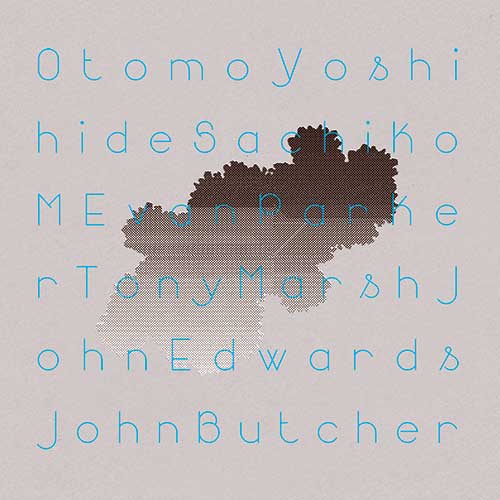
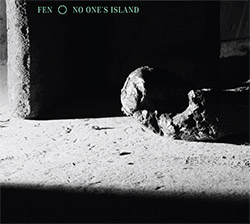

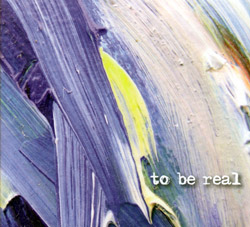
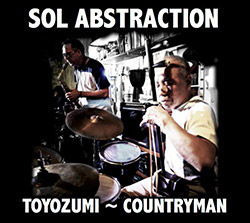

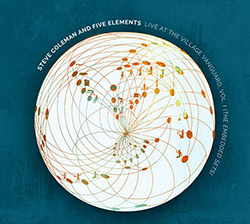



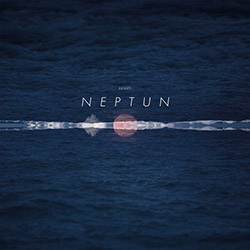



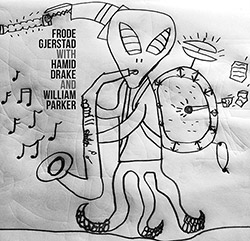

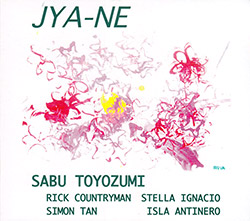


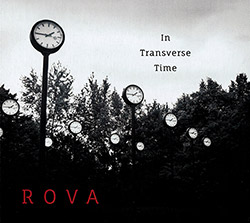




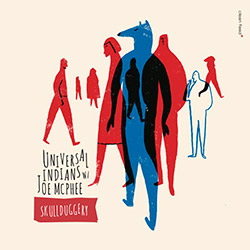
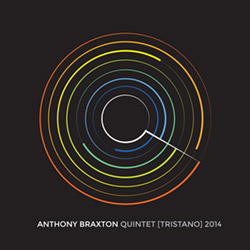

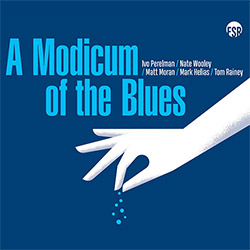


![Extraordinary Popular Delusions (Mars Williams / Jim Baker / Ed Wilkerson / Brian Sandstrom / Steve Hunt): The Last Quintet [2 CDs]](https://www.teuthida.com/productImages/misc4/36629.jpg)


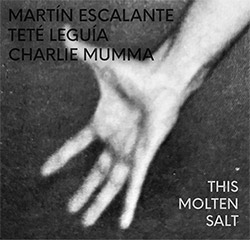
![Halat, Marcin / Maciej Garbowski: The Dialogues [2 CDs]](https://www.teuthida.com/productImages/misc4/36644.jpg)

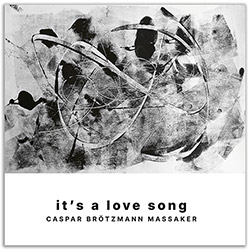
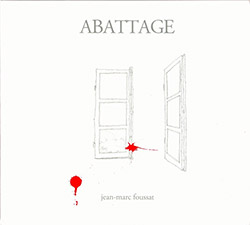


![A Magic Whistle: The Solar Cell [VINYL]](https://www.teuthida.com/productImages/misc4/36658.jpg)
![Yoshida, Tatsuya / Martin Escalante: The Sound of Raspberry [VINYL]](https://www.teuthida.com/productImages/misc4/36634.jpg)


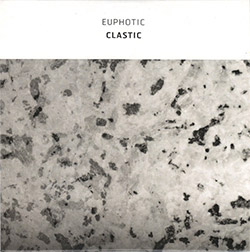
![McGee, Hal: Columbus Expedition [Cassette w/ Download]](https://www.teuthida.com/productImages/misc4/36650.jpg)

![Chadbourne, Eugene / Jair-Rohm Parker Wells : Fed Up With Bass [2 CDs]](https://www.teuthida.com/productImages/misc4/36656.jpg)


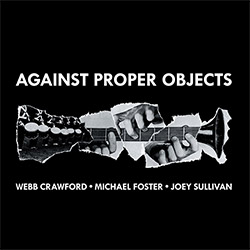



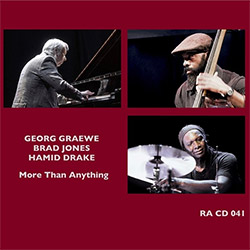
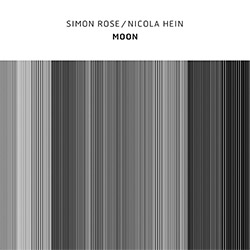
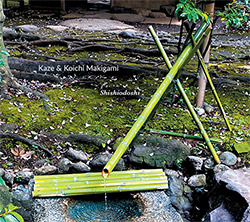
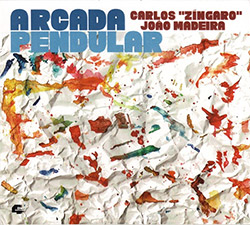
![Sun Ra: Sleeping Beauty [VINYL]](https://www.teuthida.com/productImages/misc4/36405.jpg)

![Agosti, Monica Nica / ShapeX: Ornettiana [VINYL]](https://www.teuthida.com/productImages/misc4/36514.jpg)
![Flut (Kunz / Rossler / Hall): Stones That I Have Chiseled [VINYL]](https://www.teuthida.com/productImages/misc4/36516.jpg)
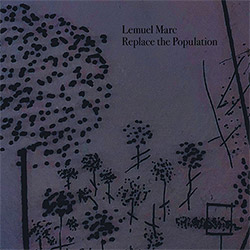
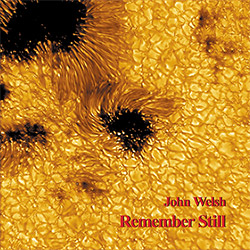
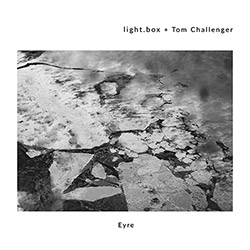
![Nakatani Gong Orchestra: NGO, Live in Ojai, California [VINYL GOLD]](https://www.teuthida.com/productImages/misc4/36470.jpg)
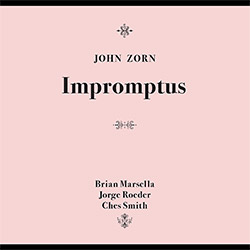

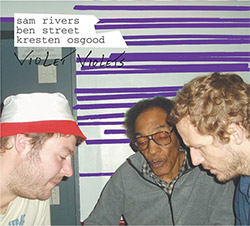
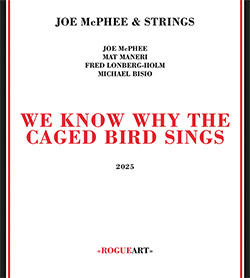




![Jaeger, Kassel: Fernweh [VINYL 2 LPs]](https://www.teuthida.com/productImages/misc4/36541.jpg)





![+DOG+: The Light Of Our Lives [2 CDs]](https://www.teuthida.com/productImages/misc4/36009.jpg)


![Eternities: Rides Again [CASSETTE]](https://www.teuthida.com/productImages/misc4/36247.jpg)

![Lopez, Francisco: Untitled (2021-2022) [2 CDs]](https://www.teuthida.com/productImages/misc4/36438.jpg)






![Money : Money 2 [2 CDs]](https://www.teuthida.com/productImages/misc4/35894.jpg)




![Klinga, Erik: Elusive Shimmer [VINYL]](https://www.teuthida.com/productImages/misc4/36258.jpg)


![Musicworks Magazine: #151 Summer 25 [MAGAZINE + CD]](https://www.teuthida.com/productImages/misc4/36559.jpg)

![Brown, Dan / Dan Reynolds: Live At The Grange Hall [unauthorized][CASSETTE]](https://www.teuthida.com/productImages/misc4/36245.jpg)








![Palestine, Charlemagne / Seppe Gebruers: Beyondddddd The Notessssss [VINYL]](https://www.teuthida.com/productImages/misc4/36206.jpg)
![Palestine, Charlemagne / Seppe Gebruers: Beyondddddd The Notessssss [NEON GREEN VINYL]](https://www.teuthida.com/productImages/misc4/36207.jpg)

![Laubrock, Ingrid: Purposing The Air [2 CDs]](https://www.teuthida.com/productImages/misc4/35639.jpg)

![Yoko, Ono / The Great Learning Orchestra: Selected Recordings From Grapefruit [2 CDs]](https://www.teuthida.com/productImages/misc4/35841.jpg)









![Zorn, John / JACK Quartet: The Complete String Quartets [2 CDs]](https://www.teuthida.com/productImages/misc4/35609.jpg)

![Koenjihyakkei: Live at Club Goodman [2 CDs]](https://www.teuthida.com/productImages/misc4/36111.jpg)

![Sorry For Laughing (G. Whitlow / M. Bates / Dave-Id / E. Ka-Spel): Rain Flowers [2 CDS]](https://www.teuthida.com/productImages/misc4/35985.jpg)

![Rolando, Tommaso / Andy Moor : Biscotti [CASSETTE w/ DOWNLOADS]](https://www.teuthida.com/productImages/misc4/36106.jpg)


![Electric Bird Noise / Derek Roddy: 8-10-22 [CD EP]](https://www.teuthida.com/productImages/misc4/35970.jpg)








![Elephant9 : Mythical River [VINYL]](https://www.teuthida.com/productImages/misc4/34624.jpg)



![Elephant9 with Terje Rypdal: Catching Fire [VINYL 2 LPs]](https://www.teuthida.com/productImages/misc4/35355.jpg)
![Deerlady (Obomsawin, Mali / Magdalena Abrego): Greatest Hits [VINYL]](https://www.teuthida.com/productImages/misc4/34876.jpg)







![Coley, Byron: Dating Tips for Touring Bands [VINYL]](https://www.teuthida.com/productImages/misc4/17906.jpg)

![Lost Kisses: My Life is Sad & Funny [DVD]](https://www.teuthida.com/productImages/misc4/lostKissesDVD.jpg)